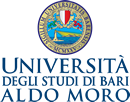Ludolinguistica e tecnologie per la didattica delle lingue: le risorse per i docenti
Abstract
The aim of this article is to propose the use of digital tools to create recreational linguistics teaching activities.
We now see language teaching evolving rapidly, making extensive use of digital technologies, experimenting with new approaches for different audiences and contexts. Recreational linguistics, based on the use of language games and puzzles, can provide an answer to renew language teaching, offering a creative and engaging teaching approach based on the pleasure of challenge. Indeed, depending on the linguistic-communicative objectives set by the teacher, various recreational linguistics activities can be used to foster the learning of the vocabulary, morphosyntactic structures and communicative functions.
However, we know that the implementation of such playful activities can be time-consuming for teachers. In order to facilitate teachers’ work in creating activities that can engage learners more, we propose the integration of digital tools for implementing recreational linguistics teaching activities.
In this paper we present an analysis of some digital platforms used by language teachers to create recreational linguistics activities and illustrate a possible use of the Gemini web application, Google’s Artificial Intelligence, as a support in the creation of teaching activities.
Parole chiave
Full Text
PDFDOI: https://doi.org/10.15162/1970-1861/2026
Refback
- Non ci sono refbacks, per ora.

